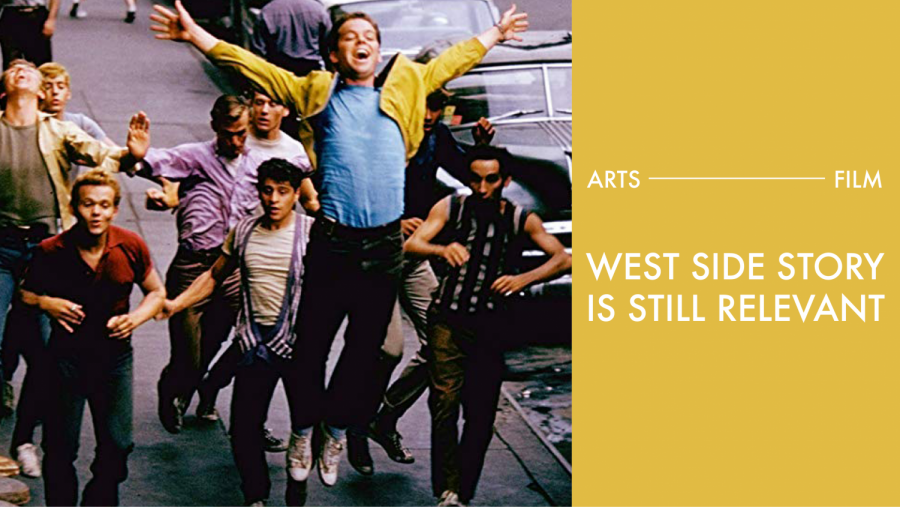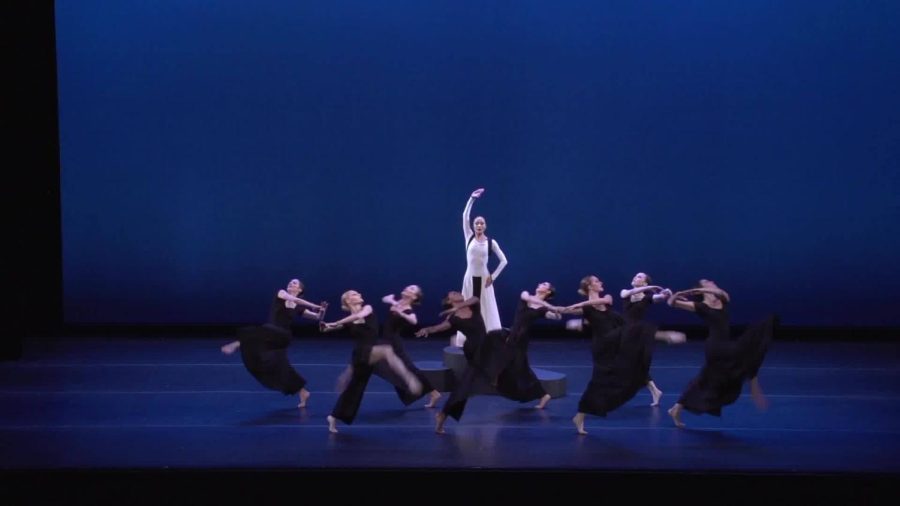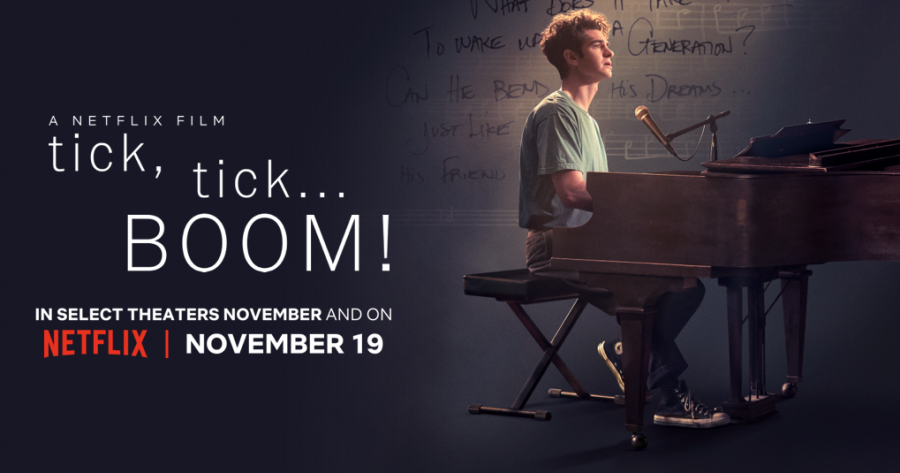Upheld in the theatre community as one of the greatest musicals of all time, with the book penned by Arthur Laurents, music composed by Leonard Bernstein and lyrics by Stephen Sondheim,“West Side Story” is a telling of Shakespeare’s “Romeo and Juliet” set in New York City during the 1950s. The musical follows the rivalry between two juvenile gangs: the white Jets and Puerto Rican Sharks. But in the midst of the violence and animosity lie star-crossed lovers Tony and Maria. Tony, formerly of the Jets and best friend of leader Riff, meets Maria, the sister of the Sharks’ leader Bernardo, at a dance and the two instantly become enamored with each other. But despite their attempts to stay separate from the rivalry, their relationship is doomed from the start.
The musical was such a hit during its original Broadway run in 1957 that in 1961, a film adaptation of “West Side Story,” starring Natalie Wood as Maria and Richard Beymer as Tony, was released. The film, directed by Robert Wise and Jerome Robbins, went on to sweep the 34th Academy Awards, winning 10 awards including Best Motion Picture. The film solidified the story in not only theatre history, but film as well, and is almost as beloved as its theatre counterpart.
Now, as the world celebrates the centennial birthday of late composer Leonard Bernstein, Steven Spielberg has announced a remake is in the works. Even with the film currently in pre-production, excitement and concerns have surrounded the project. Some are excited to see a new interpretation of “West Side Story”brought to screen for a new generation, while others say Spielberg cannot and should not build on the perfection of the 1961 film.
First to be cast, in the part of Tony, was Ansel Elgort. The rest of the characters took longer to solidify, as Spielberg wanted to keep the ethnic authenticity of the Puerto Rican characters, saying“I’m so happy that we’ve assembled a cast that reflects the astonishing depth of talent in America’s multifaceted Hispanic community.” A search to find the perfect Maria landed on Colombian-American high school student, Rachel Zegler, who, after seeing a casting call on Twitter, submitted videos of her singing “Tonight” and “Me Siento Hermosa.” The rest of the Sharks have also been cast with Latinx actors,with David Alvarez playing Bernardo, Tony-nominated Ariana DeBose as his girlfriend and Maria’s confidante, Anita, and Josh Andrés Rivera playing Chino, Bernardo’s right-hand man.
This emphasis on casting Latinx actors shows the influence modern society’s fight for equal representation has had on the film’s portrayals. In previous incarnations, proper representation of the Puerto Rican characters was forgone, as evident by the 1961’s Maria and Bernardo, played by Wood and George Chakiris, in brownface. The story has shown to be progressive, though, catching up with today’s times of diverse representation. The 2009 Broadway revival cast Latina Josefina Scaglione as Maria and even translated some lyrics into Spanish, courtesy of Lin-Manuel Miranda. This was one of the essential steps that needed to be taken for a remake of the story as representation in the media has become a forefront issue in Hollywood and whitewashing of ethnic characters is heavily frowned upon. Spielberg’s authentic casting lends the film an air of validity as the Spanish dialogue and acting are now coming from places of actual Latinx experiences – for the story of Latinx immigrants is theirs to tell and should only be told by them.
Other than casting, Spielberg has said little about his vision for the remake, but it is said to be based off of the original Broadway musical, rather than the 1961 film. Screenwriter Tony Kushner hints at more in-depth glimpses into urban culture and ethnic issues, saying“I don’t know if ‘gritty’ is necessarily the right word, but there are aspects of urban life in ’57, ’ 58, ’ 59 that weren’t touched on in the 1961 movie that we are focusing on.”Kushner also assured audiences they will hear all their favorite songs, as he is working alongside original lyricist Sondheim for the orchestrations. The setting and plot seem set to remain the same, but other than that, Kushner gives only vague ideas of what the new film will bring to the story.
Bringing Latinx experiences into the spotlight could not come at a more relevant time. Recently, the community has been negatively stereotyped in the United States, and “West Side Story” looks into the similar persecution they faced in the 1950s. To see white youth in the 1950s throw racial insults at their Puerto Rican rivals only highlights how America parallels its older self. Even in the film, we witness police officers being harsher on the Puerto Ricans than their white counterparts. We see the Jets casually converse with police, while Puerto Ricans barely share a word or two with them. The lyrics of the classic “America” highlight the very present discrimination, as Anita and Bernardo sing “Lots of new housing with more space/Lots of doors slamming in our face” and “Life is all right in America/If you’re all white in America.” Unfortunately, the Latinx immigrant community faces similar struggles today and this remake could give them a mainstream platform by showing the complex issues they face, along with their yearning to fit into America.
Despite being produced in the 1950s, “West Side Story”is still relatable to audiences today. Many of the messages seen in the original work still hold true, ranging from insensitive police, to the ethnic discrimination and the lack of acceptance of immigrants. It’ll be interesting to see the story take an expanded look into urban relations, while also retaining the star-crossed lovers as a sign of hope for a better, less discriminatory world. For it is Tony and Maria, who only see each other, not their respective gangs or differences, that audiences root for. This makes it all the more tragic as we watch the doomed couple try to navigate through a society that cannot get past people’s differences. The message of how hate leaves nothing but pain and destruction is clear, but it seems America still needs to hear it.
Ashley Tsang can be reached at [email protected].


















mplo • Sep 28, 2019 at 1:44 pm
I think that Spielberg’s reboot/remake of the 1961 film version of West Side Story is totally unnecessary, but I also disagree with the notion that Lt. Schrank and Officer Krupke were on the Jets’ side and liked them. To be truthful, neither Lt. Schrank or Officer Krupke liked the Jets, much less the Sharks (in fact, they hated the Jets just a tad or two less than they hated the Sharks.), which was especially obvious after the War Council, when Lt. Schrank, after roughly banishing the Sharks from Doc’s Candy Store, became really nasty and insulting about the Jets’ ethnicity and familial upbringing when they refused to disclose the time and whereabouts of their upcoming Rumble with the Sharks, and tried to bait Action (the most hot-tempered and combative of the Jets), into attacking him and picking a fight.
Equally indicative of the fact that Lt. Schrank disliked the Jets just a tad or so less than he disliked the Sharks was when the Jets were leaving the Candy Store, Lt. Schrank angrily said to the Jets as they were leaving the Candy Store “I’ll find out where you’re gonna rumble! But be sure to finish each other off! Because if ya don’t, I WILL!”
ahem • Mar 6, 2019 at 5:54 pm
Is it ‘darker and edgier’?
mplo • Jan 4, 2022 at 4:22 pm
From what I’ve seen of Spielberg’s reboot/remake of the film version of West Side Story, it seems too dark and too edgy. West Side Story is a musical, and a musical is also supposed to have some lightness to it, which the reboot/remake seems to be seriously lacking in.